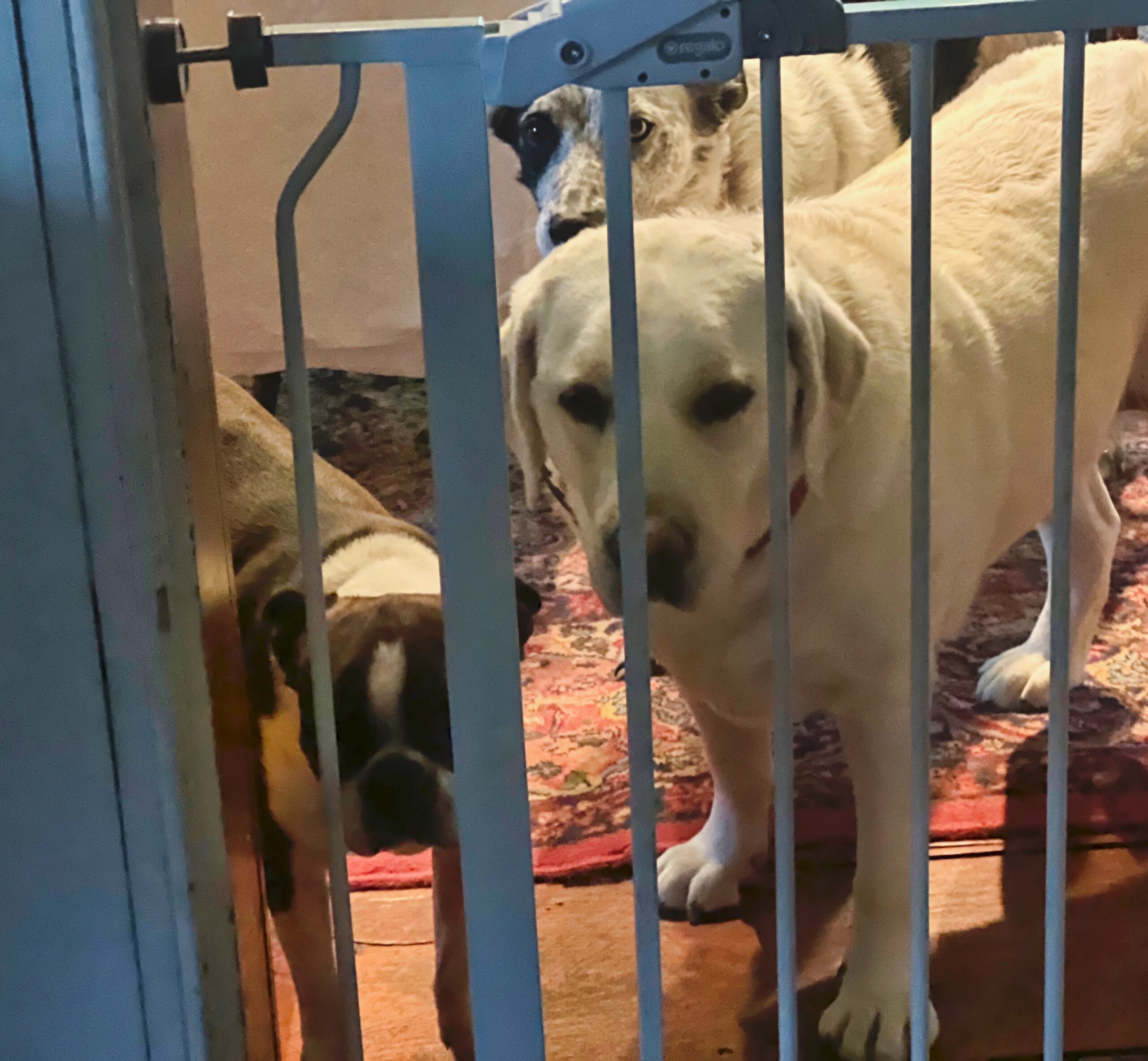As I meet loving and conscientious dog owners in my new Dog Support program (now $65 for a half hour), I am increasingly grateful for the time I spent at the University of Kentucky studying attachment theory as it applies to dogs and people. It is proving invaluable time and time again.
Our interactions with our dogs are potent factors in our relationships with them and our responses to our dog’s behavior. Our emotional connections with dogs often mirror, reflect, and reveal our earliest interactions with our parents regarding anxiety, guilt, and even panic. Dogs used to be for protection and hunting. Now, they are our personal emotional support systems.
It’s harder work for them.
It’s not true that it’s always the human’s fault regarding dogs and behavioral problems. Adopting or buying a dog has become complex, expensive, unpredictable, and chaotic. Most people know nothing about the dogs they are bringing home, which makes it often impossible to understand their behavior.
People do get the dogs they need (or think they are getting the dogs they need) and are almost always projecting their issues and neuroses onto them. Millions of dogs are being returned to shelters because people adopted them thoughtlessly and didn’t want to do the work to help them..
Since dogs have survived through the ages by becoming our emotional companions, partners, and best friends, it is crucial to know how our emotions and fears bear on the dog’s behavior. They don’t have our feelings and emotions, but they have their own. And they watch is closely for clues as to what pleases us or anger or worries us.
The key to a happy life with a dog is to understand him or her and you and how it all comes together – or doesn’t.
One woman I talked to decided to bring her dog (which she loved) back to the shelter because she was sure he was unhappy and didn’t eat or play at first. She was so guilt-stricken thinking she was harming the dog that she gave him back, even though she loved him and the dog had no time to adapt to her new home and get safe.
I asked the woman about her mother, and then I understood everything. Her mother was all about guilt and anxiety. She couldn’t bear to do to the dog what her mother did to her.
At Kentucky, they taught me that how we behave with our dogs almost always reflects how we were known and loved or not as tiny children. People quickly assume their dogs are thinking what they were thinking, wanting what they wanted, or being deprived of things they didn’t get. Guilt has no place when it comes to training or living with dogs, and it almost always takes us down the wrong path. For all we emotionalize them, they are simple creatures, loves of repetition and regularity.
They need to be trained and loved to be trained.
Once we focus on that, the dogs start to get better unless they are in-bred or severely abused.
It takes dogs about two months to acclimate to a new home. Very few people leave them alone and give them that time. Most dogs will do anything to please those who love them and take them out for walks. Most people don’t know how to talk to them.
I’m fascinated by the emotional connections between people and their dogs; this is helping my Dog Support. People who love their dogs want to know and face their own issues as well as the dogs. I’m not a shrink and don’t wish to be one. But I do know we can’t help our dogs if we don’t understand why we have them.
Those are the people I know are going to get the dogs they want and love – the ones who are looking for some truth and perspective. It’s the first question I ask: why do you have the dog you have?
You can apply for dog support here. Remember, the fee is now $65 for a half hour, and I will stick with my dog people for as long as it takes to fix the problem or give up on it. (No extra charge for the spare time.)
I am happy to have a new revenue stream but even happier to help people, and so far, so good.) You can read about Dog Support here.


I really like this column today about dogs.